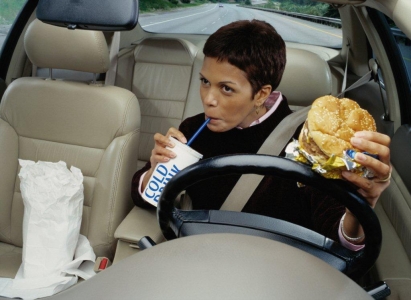Driving for the first time? Or you’re an experienced driver? Or do you have a personal driver? Regardless, distractions are inevitable when driving. As much as driving is fun both for adults and young ones, there are a number of distractions that are likely to cause accidents whether you are an experienced or a first-time driver. According to the Royal Society for the Prevention of Accidents, there are four types of distraction. These are:
- Visual Distraction: this occurs when a driver sees objects or occurrences and gets distracted from off the road.
- Cognitive Distraction: this happens when a driver is busy thinking about something unrelated to driving i.e. personal or family issues, unhappy marriage, lack of sufficient money etc. This will make the driver less aware of the mirrors and events on the road
- Auditory Distraction: this occurs when sound interferes with a driver’s hearing by drawing his attention to whatever caused the sound i.e. loud music blaring from another car’s stereo etc.
- Bio-mechanical Distraction: this happens when a driver is engaged in physical activities completely unrelated to driving, such as receiving or making a call, holding something or reaching down to pick something up, kissing and necking, eating etc.

FindADriver247.com, Africa’s number one platform for hiring drivers on a monthly or daily basis shares 3 ways to reduce distraction while driving:
- Avoid distractions in the first place: recognise what makes you distracted in the first place. Self-assessment is a vital part of driving, so it is important to evaluate your actions on the wheel whether they are safe. Quite often, drivers do things without realising that they are distracting activities, leaving them unaware of the extra risk this can cause.
- Eliminate distractions when you become aware of them: once you become aware that you need to do something that would impair your focus, next step is to find a safe place to pull over first – although it is most advisable to try to plan ahead and reduce the likelihood of becoming distracted in the first place. Make sure you are ready to drive before setting off for a journey. If you are about to drive after an emotional event, then it is best to allow yourself time to cool down.

- Limit in-vehicle technology: for many drivers these days, in-vehicle technology can be a major distraction. It is best to avoid having too many devices in one car, and acquaint yourself with how they work before you set off. This way you won’t have to fiddle with buttons whilst moving, resulting in a loss of focus on the road around you.















